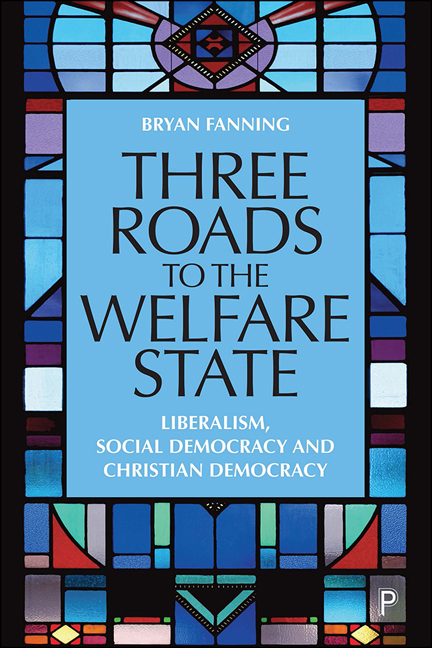Book contents
- Frontmatter
- Contents
- About the author
- Preface
- 1 Three roads
- 2 The invention of laissez faire
- 3 Utopian socialism
- 4 Reform liberalism and technocracy
- 5 Catholic social thought versus modernity
- 6 The case for social democracy
- 7 Social engineering versus democracy
- 8 The rise of neoliberalism
- 9 European Christian democracy
- 10 Legacies
- Notes
- Select bibliography
- Index
10 - Legacies
Published online by Cambridge University Press: 13 May 2022
- Frontmatter
- Contents
- About the author
- Preface
- 1 Three roads
- 2 The invention of laissez faire
- 3 Utopian socialism
- 4 Reform liberalism and technocracy
- 5 Catholic social thought versus modernity
- 6 The case for social democracy
- 7 Social engineering versus democracy
- 8 The rise of neoliberalism
- 9 European Christian democracy
- 10 Legacies
- Notes
- Select bibliography
- Index
Summary
Previous chapters have examined how influential thinking about social policy developed along three winding roads since the beginning of the industrial revolution in several European countries. In various places conservatives have sought to resist liberalism and socialism, socialists have rejected liberalism and conservatism while liberals have sought to overcome conservativism and resist the influence of socialism. However, it is not simply the case that each of these worldviews has always operated as an intellectual silo. There have been crosspollinations of ideas and ongoing pragmatic accommodations that have been made by political parties in order to maximise electoral support. Many European countries have long been run by coalition governments which represent more than one ideological perspective and where political power has oscillated between rival political parties who are, to some extent, in ideological opposition to one another.
This is not to claim that ideological conflicts have not often been fierce. The kinds of intellectual silos and echo chambers that are now all too apparent on social media are by no means recent phenomena. Yet, the rationale for much social policy has been functional, notwithstanding some differences from country to country when it came to who did what – the state, markets or the voluntary sector – within mixed economies of welfare. Countries affected by broadly similar processes of social change over time have required similar services and institutions: schools, universities, hospitals, utilities and so on. How these are organised continues to be worth arguing over. For example, the absence of pre-school education as the legacy of conservativism can inhibit the ability of women with children to engage in paid employment. Whether access to health care depends upon individual levels of wealth or is made free at the point of use can literally be a matter of life or death.
The period covered in earlier chapters stretches from the publication of The Wealth of Nations in 1776 to the publication of Gosta Esping-Andersen's Three Worlds of Welfare Capitalism in 1990. The starting place for this final chapter is a once influential take on how the future might play out, Francis Fukuyama's The End of History and the Last Man, which was published a few years later in 1992.
- Type
- Chapter
- Information
- Three Roads to the Welfare StateLiberalism, Social Democracy and Christian Democracy, pp. 203 - 214Publisher: Bristol University PressPrint publication year: 2021



